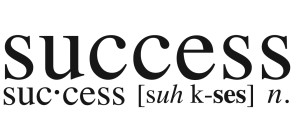
By Sam Leon | Student Columnist
As we begin the school year, I can’t help but think about the purpose and intentions of us all attending a major university. Even as an upperclassman, I’m constantly reevaluating my ideas of success and how school relates to that idea.
Too often, when I speak to peers I haven’t seen in a while, I ask them how school is going and I find I get many of the same responses — they hate their major or they’re just coasting through their secondary education. The one that stings the most is when a young person says to me, “It’s going alright, but what I really want to do is….”
Why does this response always remain in my head? I believe that sometimes the word “success” is misused and misunderstood, which produces some negative complexes and outlooks. And, as young people, we have a weakened sense of the real agency — the capacity to exert power — that we hold concerning our achievements. From that misunderstanding and lack of confidence, I see intelligent youth undercutting their own abilities — abilities they don’t yet need a degree to put in use.
It’s clear, through observation and conversation, what many of our peers, parents and industry professionals consider the basis of a successful young person in 2013. Those considerations seem to heavily, almost completely, rest on whether someone attends college and what industry they pursue. There is a problem with this extreme. Achievement shouldn’t end with or completely rest on schooling. Outside, independent learning should be valued just as much as formal education.
College is often thought of as the epitome of a successful young adult; rather, it should be viewed as a tool and a supplement to achieving a person’s ultimate goals in profession and knowledge. The former view breeds a sense of comfort and even a disengagement from the “real” world. I find many students, myself included, feel as though they aren’t yet qualified to contribute to society but feel they are ready to do so.
This sort of middle place can be frustrating to be stuck in. In reality, this place doesn’t exist. It’s merely a mental blockade. This is where our agency needs to be strengthened, and this shift in thinking is crucial.
One of the Merriam-Webster dictionary definition of success is “a favorable or desired outcome; the attainment of wealth, favor, or eminence.” Pretty general, right? It could be applied to any goal. The use of language, even when thinking privately to ourselves, is important to shaping our outlook on life. Like most words in use, their original meanings pick up culturally relative connotations — we tack on our own meanings depending on our environment.
Much of the time, these extra meanings don’t emerge from ourselves and societal pressure comes down heavy, affecting our decisions and views of ourselves as effective, contributing humans. This is particularly important when entering or attending college.
I encourage people, especially the young, to recognize these extra cultural meanings, but to then create their own—to tailor the concept to their own lives.
The youth have more power and more ability than they think and than they are told. For example, it’s possible to do well in school while dually working on an independent project — draft your business plan, put your music out, send pieces to be published in major journals, start an organization or begin your own research fund.
Some of the most successful entrepreneurs were in their 20’s when they began start-up versions of what are now massive companies — like Mark Zuckerberg, Larry Page, and Sergey Brin. They all launched these projects while still attending college. The “real” world can and should be infiltrated now, despite society echoing that you’re unprepared.
You may not have your degree yet, but you’d be surprised at how you can get ahead while still in the process of obtaining it. The point is, much more happens when you decide not to wait.
Further, I would love to be the one to advocate for college students to do what they love without worrying about money — but everyone likes to live comfortably.
We have all seen the generalized graphs that depict the higher the college degree, the higher the yielded earnings, and the recommended majors to choose to get there. But statistics are often limited in scope and samples, and take only a few factors into consideration. Plus, being an outlier is not always a bad thing.
So, to ground my points, I’ll share one of the best pieces of advice I’ve received. The advice is from my father, and I repeat it to myself every day: if you’re great at what you do, you can make money in anything.
Your passions will drive you to be the best of your ability. You can get what you want if you try your hardest and do the best to your ability.
Chances are if you choose to pursue a passion, you will excel at it and naturally put forth effort because you enjoy what you do. And almost always, greatness breeds success, whatever your personal definition for it may be.So, get out there and do what you love and give it your all.This is your chance.
Comic by Courtney Downing/ the Duquesne Duke
Sam Leon is a junior English writing major and can be reached at samantha.leon31@yahoo.com.



